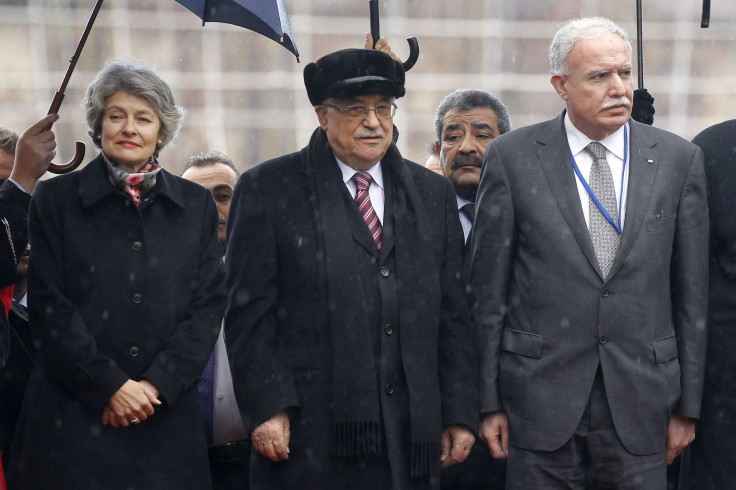Unesco Blocks 'Anti-Semitic' Palestine Art Collection Celebrating Palestinian Liberation Movement

The head of the United Nations' cultural agency has vetoed the inclusion of a collection of Palestine-themed posters initially accepted into the organization’s world heritage register. Unesco Director-General Irina Bokova claimed that the posters fuel anti-Semitism in a decision that marks the first time such a nomination has been vetoed by the agency, according to a report Wednesday by the Times of Israel.
The collection of 1,700 posters celebrating the Palestinian liberation movement was accepted in August for formal review by the agency’s International Memory of the World Register, which seeks to preserve and facilitate access to the “world’s documentary heritage,” according to Unesco’s website. Bokova later blocked their inclusion into the register, however, arguing that some of the posters were “totally unacceptable” and ran “counter to the values of Unesco,” the Times of Israel reported.
“It is my conviction that Unesco should not associate itself with such documents whose inscription could fuel hatred and anti-Semitic perceptions,” Bokova wrote in a letter to World Jewish Congress CEO Robert Singer, a critic of the register’s consideration of the Palestinian poster collection.
Collection of #Palestine posters nominated for @UNESCO Memory of the World program http://t.co/h8FVQokG01 @AlMonitor pic.twitter.com/ch0Wy2IWur
— Palestine Studies (@PalStudies) September 2, 2014The nominated work, known officially as the Liberation Graphics Collection of Palestine Posters, was the first documentary heritage resource nominated by Palestine for Unesco consideration, reported Al Arabiya. The nomination had been described as a significant event for Palestinian art and culture by the curator of the archives back in August when it was first accepted. Had the collection been approved, it would have joined a prestigious register that includes the Book of Kells, the Bayeux Tapestry and the Gutenberg Bible.
Unesco admitted Palestine as a full member in 2011, when it became one of the first international bodies to recognize Palestine as a state. The decision prompted the United States to cut off its financial contributions to the agency, in accordance with its laws prohibiting funding toward any U.N. entity recognizing a Palestinian state, according to Reuters. Israel also pulled its funding in objection of what it called a unilateral attempt by the Palestinians to gain recognition of statehood.
© Copyright IBTimes 2024. All rights reserved.












